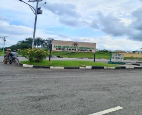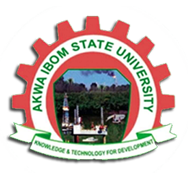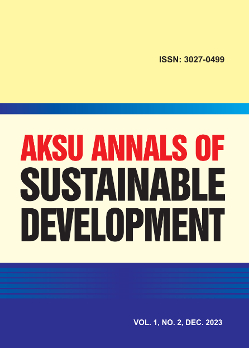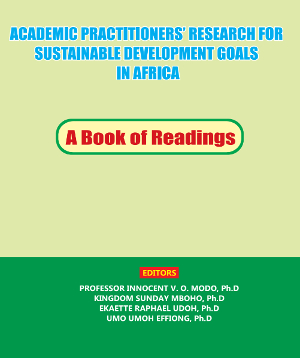INCLUSIVE EDUCATION AND SUSTAINABLE LEARNING OPPORTUNITIES FOR PERSONS WITH DISABILITIES (PWDs) IN AKWA IBOM STATE UNIVERSITY, OBIO AKPA CAMPUS, NIGERIA
Abstract
INTRODUCTION
Inclusive education offers global citizens with disabilities sustainable life-long learning opportunities for self-actualization on equal basis with others (Hale, 1990). Regrettably, 90% of children with disabilities in low income countries do not go to school, and of which about 30% of the world‟s street children live with a disability (UNESCO, 2014). In Nigeria, children with disabilities are systematically turned away from educational establishments by social barriers, compelling many to remain either uneducated or educated at home or, later on, sent to special schools (Iheanacho, 2009).However, education founded on wrong philosophy of destroying the traditional skill cannot drive sustainable development goals (Agha et al. 2020).
In spite of policies by development agencies to guarantee the education for all, people with disabilities consistently experienced less education (Effiong and Ekpenyong 2018), lower levels of employment and higher poverty rates (Effiong, 2019). Scholars on disability studies such as, Axelsson et al. (2009) viewed disability as neglected from being viewed as a vital issue in global poverty disconnected from mainstream development theories and practices. Evidence and experience in Nigeria, according to Effiong (2018a), shows that despite existence of institutional policy frameworks and legal instruments, such as the United Nations Convention of the Rights of Persons with Disabilities (2007); National Policy on Education (2014) and the Discrimination Against Persons with Disabilities (Prohibition) Act (2018) which clearly spelt out that inclusive education is a universal and fundamental human rights for all persons with disabilities. Yet, fewer children with disabilities have access to education and are most times, completely excluded or have to face constant battles to prove their abilities in rural schools in most communities.
Disability, according to the Agenda 4 of Sustainable Development Goals (SDGs), should not be a reason for unequal access to educational opportunities, and hence, had nonetheless, proven to be more disability oriented framework targeted at an inclusive and equitable qualitative education and promotion of lifelong learning and opportunity for all by 2030 (SDGs, 2016). The situation in Nigeria, as noted by Effiong and Ekpenyong (2018), had attracted serious academic debates from scholars on disability studies, especially as previous disability programmes appear far too objective than practical both in terms of the nature and its operation. Given this scenario, there is need for researchers or the affected persons to show the extent of accessibility gaps hitherto existed, which this study is, at least very apt, to pervade into by adopting a suitable research approach to ascertain its aim.
Downloads
References
Agha E., Ukommi A., Ekpenyong O. and Effiong U. (2020). Establishing the Nexus between Technical Education and Industrial Development in Nigeria. Journal of Research in Education and Society, 11(1), 38-56.
Akpan, C. and Effiong, U., (2021). Communication and Social Inclusion Advocacy for Persons with Disabilities in Akwa Ibom State, Nigeria. International Journal of African Language and Media Studies, 1(1), 60-75.
Axelsson, C. and Barrett, D. (2009). Access to Social Services for Persons with Disabilities in the Middle East – Multi-stakeholder Reflections for Policy Reform, Disability Monitor Initiative –Middle East. South East Europe. CBM and Handicap International.
Daniel, E. (2019). Akwa Ibom State University Obio Akpa Campus Guide Map. Step by Step Publishers.
Effiong, U. and Agha, E. (2020). Rehabilitation Interventions and Non-Medical Use of Prescription among Persons with Psycho-Social Disabilities in Nigeria. Perspectives on Drugs, Alcohol and Society in Africa, 5(1), 92-108.
Effiong, U. (2019). Gender and Health Inequalities amongst Rural Women with Disabilities in Ikot Ekpene Local Government Area of Akwa Ibom State. Akwapoly Journal of Communication and Scientific Research, 4(1), 88-103.
Effiong U., Kingdom M. and Wordu S. (2018), Post-Civil War Experience and Women with Disabilities in Nigeria. Journal of Research in Education and Society, 9(2), 105–126
Effiong U., Udousung I. and Udoh E. (2018). Herdsmen/Farmers Crisis and Rehabilitation of Victims: A Study of Middlebelt-Nigeria. Uyo Journal of Sustainable Development, 3(2), 163-169.
Effiong, U. and Ekpenyong, O. (2017). Community Based Rehabilitation Services and Livelihood Enhancement for Persons with Disabilities in Nigeria: A Case Study of Akwa Ibom State. Journal of Sociology, Psychology and Anthropology in Practice, 8(1), 62 –67.
Effiong, U. and Ekpenyong, O., (2017). Effect of Community Based Rehabilitation Services and Livelihood Enhancement among People with Disabilities in Akwa Ibom State, Nigeria. International Journal of Economic Development Research and Investment, 8(1), 15 – 30.
Sserunkuma, M. C. (2017). CBR Guidelines: A Bridge to Inclusive Society Beyond the 2015 Development Framework. Bangalore: CBR Africa Network.
United Nations (2015). Transforming our World: The 2030 Agenda for Sustainable Development A/RES/70/1
WHO (2011). WHO and World Bank World Report on Disability. Geneva, Switzerland: World Health Organisation. United Nations, http://www.un.org/disabilities/default.asp?navid=15&pid=150
UNICEF, http://www.unicef.org/policyanalysis/rights/
UNESCO (2005) Guidelines for Inclusion: ensuring access to education for all, Paris.

Downloads
Published
Issue
Section
Categories
License
Copyright (c) 2024 AKSU Annals of Sustainable Development

This work is licensed under a Creative Commons Attribution-NonCommercial-NoDerivatives 4.0 International License.
Manuscript content on this site is licensed under Creative Commons Licenses. Authors wishing to include figures, tables, or text passages that have already been published elsewhere are required to obtain permission from the copyright owner(s) for both the print and online format and to include evidence that such permission has been granted when submitting their papers. Any material received without such evidence will be assumed to originate from the authors.





 ICIDR Publishing House
ICIDR Publishing House